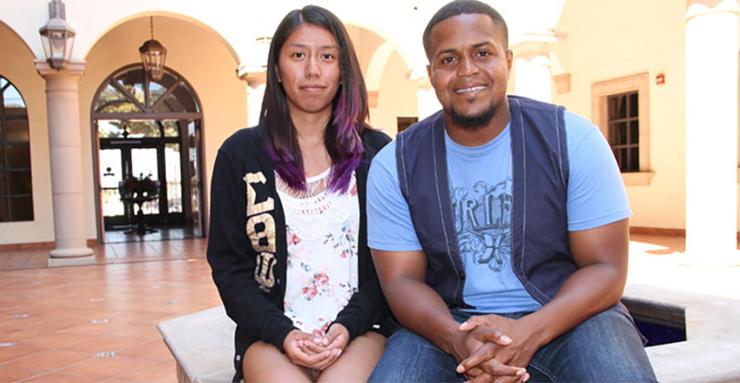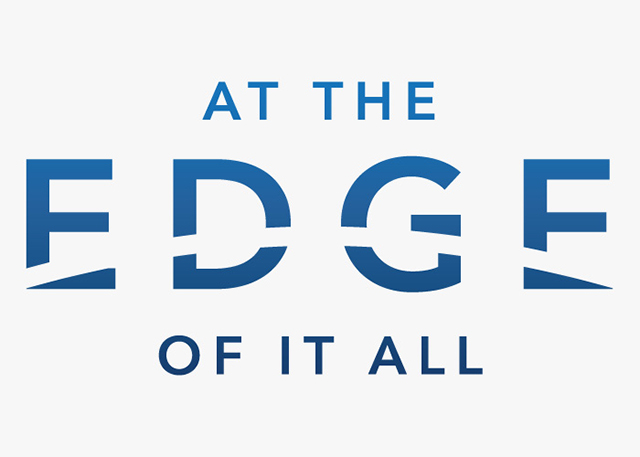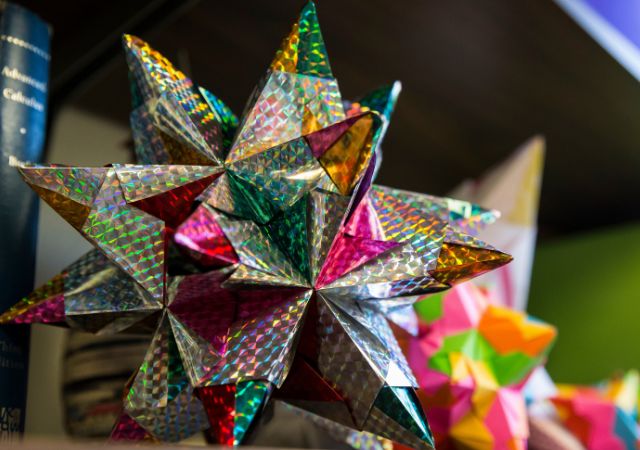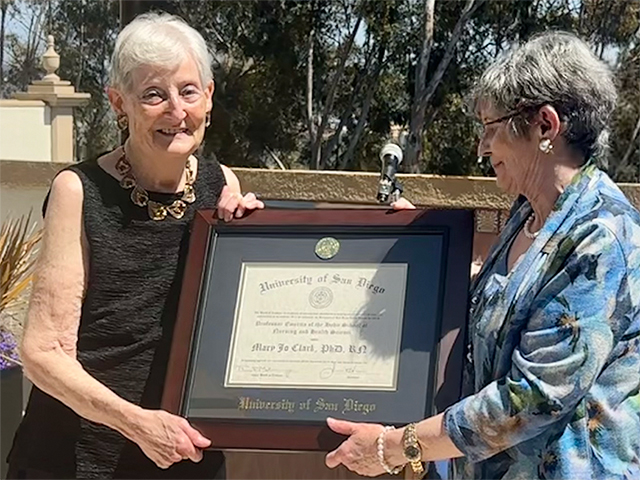Torero Renaissance Scholars Program Supports Foster-Care Youth in College
 Alejandra Lopez-Cuellar and Keyon Whitman are undergraduate and graduate students who are connected to USD's Torero Renaissance Scholars program that supports former foster-care youth now in college.
Alejandra Lopez-Cuellar and Keyon Whitman are undergraduate and graduate students who are connected to USD's Torero Renaissance Scholars program that supports former foster-care youth now in college.Kenyon Whitman is halfway to his personal education finish line as a doctoral student in the School of Leadership and Education Sciences' Leadership Studies program. Alejandra Lopez-Cuellar's junior year as an Ethnic Studies and International Relations double major has begun.
Both students at the University of San Diego have leadership roles, both are active in student organizations, both have meaningful, steady work on campus and both are reliable, efficient and helpful people.
Whitman and Lopez-Cuellar are also shining examples of foster-care youth who've overcome major statistical odds among an estimated 60,000 who reside in California.
"In general, one percent of foster youth earn a college degree — that's one percent of the 45 percent who graduate from high school," said Whitman, who was in foster care for 18 of his 27 years. "Foster youth leave care with many challenges and difficulties that really makes college a difficult task to accomplish. Foster youth are more likely to suffer from post-traumatic stress disorder (PTSD) than military members. About 65 percent of foster youth end up homeless or in jail within a year of emancipation. These are the realities that foster youth face in San Diego and nationally."
Whitman, who earned his undergraduate and master's degrees at California State University, Fresno, did so after two stints on academic probation. In his third year and running out of options, the introduction of Renaissance Scholars, a program for foster-care students that offers resources and support, was a timely addition. Whitman inquired and met with Fresno State’s founding director, Kizzy Lopez.
"Once you're on academic probation twice, you're no longer eligible for financial aid," he said. "Kizzy wrote an appeal letter to get me reinstated. If it wasn't for the Renaissance Scholars program at Fresno State I wouldn't have graduated from college and I wouldn't be in a PhD program right now."
Whitman's arrival at USD helped raise interest in working with current students who were foster youth and to provide prospective students with the knowledge that there is support for them on campus.
Called the Torero Renaissance Scholars (TRS) program, Whitman appreciates that USD is committed to hosting a supportive, nurturing environment.
"Why it's important to USD to care about foster youth and the overall San Diego community is because we are the children of the community. Taxpayers' dollars help raise and support foster children. Institutionally, it’s in line with USD's Catholic Social Thought, its Catholic values of supporting orphans, supporting homeless and being compassionate people."
TRS is in its infancy, but it’s the result of three years of foundational work by USD administrators, faculty, staff and Whitman, to ensure an inclusive campus.
"I think this is an invisible group of underrepresented students, yet there's 60,000 foster youth in California," said Cynthia Avery, EdD, USD’s associate vice president for student life. "Seventy-three percent of foster youth intend on going to college, but only 4.6 percent get an associate degree and 2.5 percent get a four-year degree. Despite wanting to go to college, there's often not a lot of help in the process. And, once they get onto campus, there's often not the support needed to help with their retention or completion to graduation."
The TRS website provides resources on and off campus, provides USD contacts’ information and a photo of the collaborative group members so students know who they are. There have been small lunch gatherings to meet students willing to participate and give students a chance to meet each other and build community.
"We want our students to know there are people here who understand what it means to have been part of the foster-care system, understand the hurdles and obstacles and know that there are resources to help them," Avery said.
But it's not as easy as just creating a program.
"The challenging part is that most students won't out themselves because they're afraid people won't understand what their experience has been — and each person has a specific story," Avery said. "We want them to feel that they're a part of the community, to have a relationship with one another so they have a cohort of fellow students who understand their experience. We want them to know they matter to us, they are loved and they are welcome."
Lopez-Cuellar was in foster care as a high school sophomore.
"I didn't see myself going to college, but at the same time, I saw it as a way out of the upbringing I was in. My way into college was through my CASA (Court Appointed Special Advocate). She really pushed for me to come here. I got in, but I was a little scared because there's a stereotype of USD being very wealthy and people are very affluent. Coming from a low-income background, I wasn't so sure how I'd fit in."
She participated in TRiO Student Support Services' (SSS) pre-orientation program, Summer Bridge, in 2012 and soon learned about the foster care collaborative group. Meeting Whitman and others who understood her made a difference.
"I did think I was the only one at USD," she said. "You just don't see other foster youth students here. But when you do and there’s a mutual understanding, it's like what Kenyon said, 'when you're with other foster youth kids, you don't have to explain yourself. You just know.' It was comforting."
Rebecca Bernhardt is an SSS academic coordinator. SSS works with USD's student population from low-income or first-generation college backgrounds and those with a documented disability. A 2010 USD undergraduate alumna and now a second-year master's student in SOLES' school counseling program, Bernhardt said she’s interested in doing research on foster youth to bring more attention to it.
"It's been so nice to work with them because I'm learning more about foster youth,” Bernhardt said. “As I learn more, I can help more students."
Torero Renaissance Scholars is searching for grant funding as it continues to meet, support and raise awareness. Having Whitman as a strong, visible student advocate inspires others.
"I enjoy listening and talking to Kenyon because he started from the bottom," said Lopez-Cuellar. "I see what Kenyon's done, how he's pulled through hard times, coming to USD, doing the PhD. But he's also helping to launch, create and develop a program that gives other foster youth an opportunity. I think it can definitely make the transition to college smoother. I so admire him for doing it."
— Ryan T. Blystone
Contact:
USD News Center
news@sandiego.edu
(619) 260-4681



